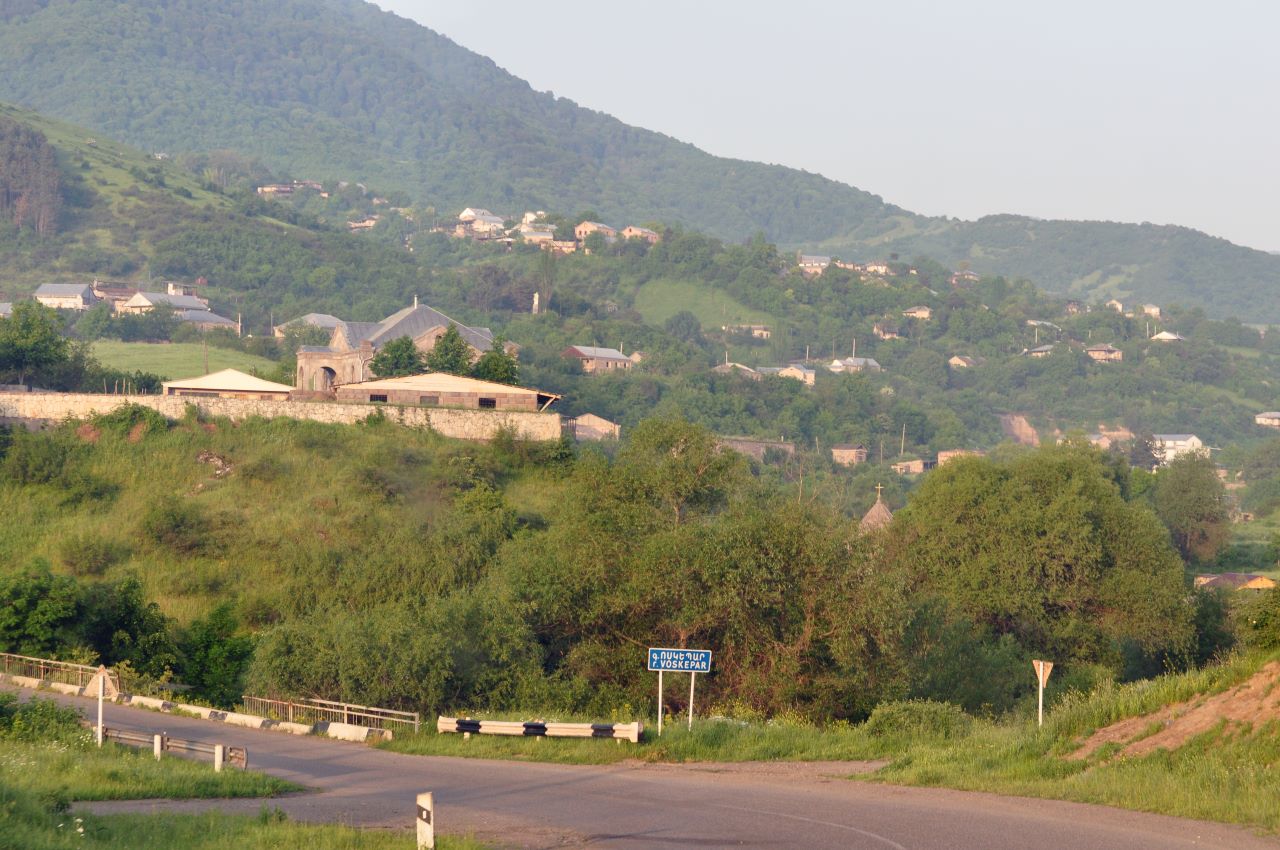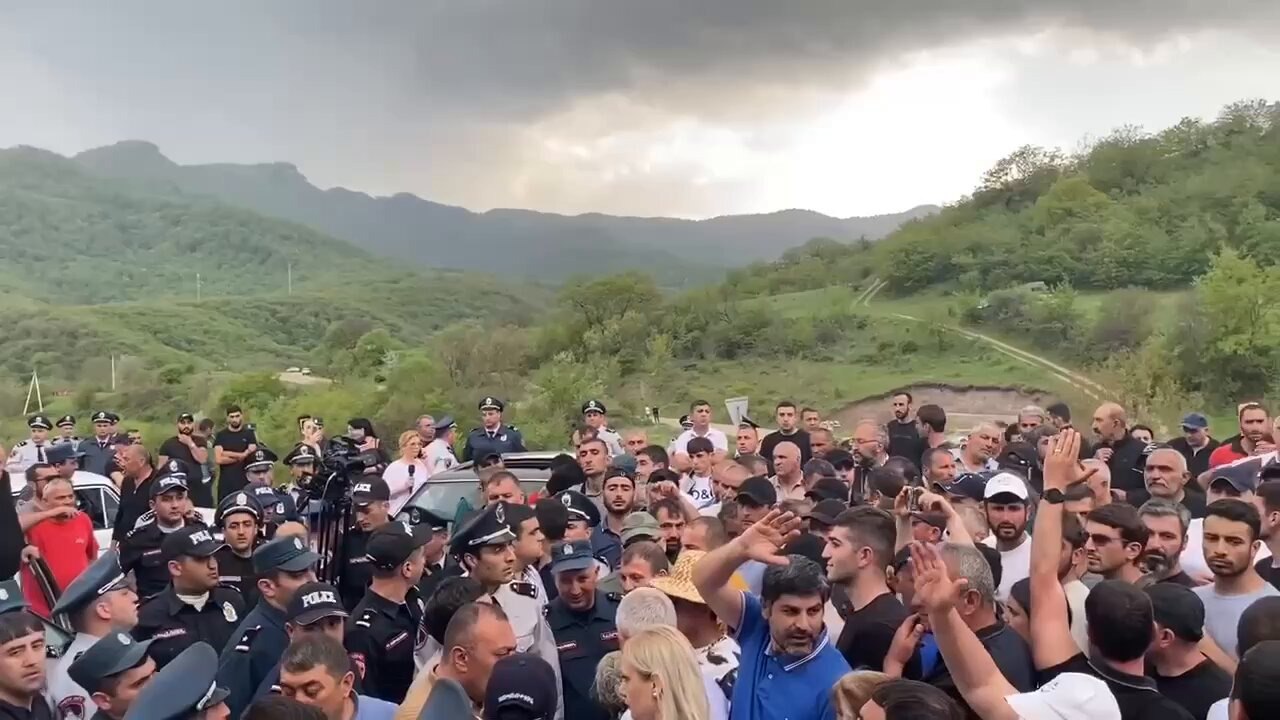Ruling faction rejects opposition's border demarcation proposal as 'dangerous for Armenia'
Armenian Parliament on demarcation
The main topic in Armenia continues to be the process of border delimitation and demarcation with Azerbaijan. Discussions are ongoing, even in parliament. One of the opposition factions has proposed issuing a statement regarding the progress of the ongoing delimitation process of the Armenian-Azerbaijani border.
The draft presented by the “Hayastan” faction suggested delimiting the borders between the countries not based on the 1991 Alma-Ata Declaration but along the line of contact as of September 24, 1993. Opposition members claim that under the guise of a “so-called pilot delimitation,” Armenia’s territories are being gradually handed over to the enemy, piece by piece.
Delimitation according to the Alma-Ata Declaration implies maintaining the administrative borders of both countries at the time of the USSR’s dissolution. The 1993 line of contact reflects the realities following the military actions. In light of this, the ruling faction declared that the opposition’s project contains “dangers and risks” to statehood.
“You legitimize the right to force. When force begins to act, your ally [referring to Russia] will once again fail to fulfill its obligations. And what has happened many times before will happen again,” said parliament vice-speaker Ruben Rubinyan.
However, the opposition argued that it is the ruling team’s actions that will “turn Armenia into a Russian province.”
The draft statement did not even make it to the agenda. 27 deputies voted in favor of its consideration, while 51 voted against.
On April 19, Yerevan and Baku announced that the commissions of the two countries on delimitation had “preliminarily agreed” to bring the border in the Tavush-Gazakh section in line with the “interrepublican border that existed at the time of the USSR’s dissolution.” Armenia agreed to transfer territories of four adjacent “non-enclave villages” to Azerbaijan.
In the Tavush region, 35 border posts have already been installed. Simultaneously with the delimitation process, protests are taking place in Armenia. People believe that the authorities are making unilateral concessions that create security problems. The country’s leadership asserts its readiness to resolve all issues.
- Why did Baku and Moscow recall the trilateral statement with Yerevan? Opinion
- ‘Moscow knows the fire will be lit not in Yerevan, but in Baku’ – Armenian analysts
“Armenia does not concede a single millimeter of its territory”
Opposition members asserted that the aim of their proposal was to ensure a higher level of Armenia’s security, supported by international law.
The ruling team responded that the presented project does not align with Armenia’s government course to establish peace in the region and contradicts state interests.
“Armenia does not concede a single millimeter of its territory. The ongoing processes of delimitation and demarcation are nothing but the reproduction of Armenia’s and Azerbaijan’s borders on the ground,” reassured Maria Karapetyan, a deputy from the ruling “Civil Contract” faction and a member of the parliamentary committee on foreign relations.
In her view, if Armenia were to delimit according to the line of contact existing in September 1993, it would thereby relinquish its state border and revert to the logic of military actions:
“This is absolutely unacceptable and entails legal, political, diplomatic, and military risks for the Republic of Armenia.”
She declared that the opposition’s proposal is a “joint project of the ‘Dashnaktsutyun’ party and the empire” [referring to Russia]:
“The sincere desire of ‘Dashnaktsutyun’ to have a larger territory for Armenia, unfortunately, is being exploited by the empire to lead to the reduction of Armenia’s territory or the absolute disappearance of Armenian statehood.”
“Territories only can be changed according to the results of a referendum”
The statement project was presented to the parliament by opposition deputy Arthur Khachatryan. He stated that the border delimitation commission, led by vice prime minister Mger Grigoryan, is an advisory body without sufficient authority to change the border:
“No one has given the commission the right to decide where the border lies. Any change in the border, any change in territory [according to the constitution] must be approved by a nationwide referendum.”
Deputies from the ruling faction argued that the existing border is not being changed but clarified.
Opposition deputy Armen Rustamyan questioned why the border is being reproduced only in this section and not entirely:
“What you call segmental delimitation does not exist in international practice. Azerbaijan invented it and imposed it on you.”
To support his words, Rustamyan reminded of the Armenian prime minister’s statement that if delimitation and demarcation of the border are not started, Azerbaijan will start a new war.
“It’s Baku who wanted the border to be blurred”
Parliament vice-speaker Ruben Rubinyan, responding to the opposition, stated that Baku indeed “wanted the border to be blurred.” According to him, before the agreement reached on April 19, Azerbaijan wanted “the rule of force to apply on the Armenian-Azerbaijani border,” meaning “each country’s border would be where its army could hold.”
As Rubinyan said, the opposition is trying to legitimize the same logic, while the Armenian authorities adhere to a different position.
“The border between the two countries should be determined by documents and maps with legal justification. According to the latest agreement reached by the delimitation commissions, the basis for determining the borders will be the Alma-Ata Declaration,” emphasized the vice-speaker.
“The opposition wants to invite ‘saviors’ and appoint a governor of the Armenian province”
According to the secretary of the “Civil Contract” faction, Artur Hovhannisyan, the opposition is well aware that these four villages are the “last legal argument” for Azerbaijan to attack Armenia:
“The opposition is doing everything to prevent the conclusion of this process, wanting to drag Armenia into war, and then invite ‘saviors’ according to a well-known scenario and appoint a governor of Armenia. That’s the opposition’s goal.”
Deputy from the ruling faction, Vahagn Aleksanyan, quoted one of the opposition members as saying, “The homeland is constant and eternal, while the state is changeable; state borders can expand and contract.” According to Aleksanyan, this proves that for the opposition, the concept of the state is fluid:
“Today they are deputies of the National Assembly of the Republic of Armenia, tomorrow they will be deputies of the ‘city council of the Armenian province.’ Today our opposition colleagues call the Armenian flag their tricolor, tomorrow they will call another flag their tricolor, the top stripe of which is white. It makes no difference to them.”
According to the ruling faction deputy, this is where the ideological disagreements lie with the Armenian opposition:
“For us, the Republic of Armenia is irreplaceable, the independence of the RA is not up for discussion. But for these people, it’s not the same. And they openly declare it. I leave the conclusions to you – Republic of Armenia or Armenian province [the last two words pronounced in Russian].”




















